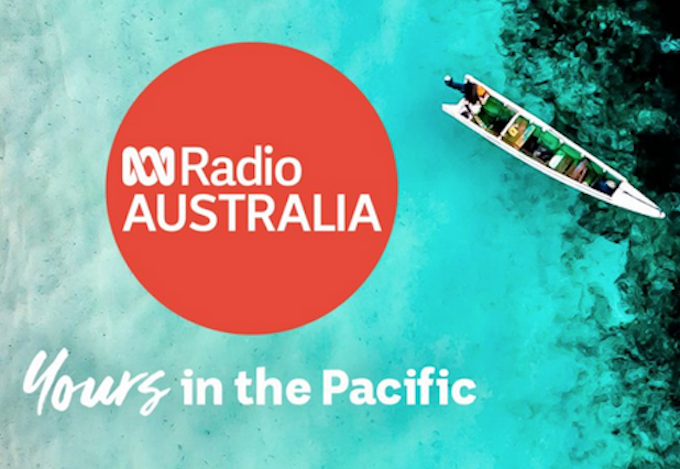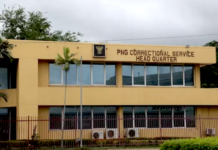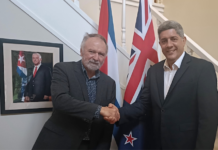
ANALYSIS: By Claire M. Gorman
The Australian government is moving fast to reset relations with Australia’s Pacific partners, including a larger Pacific role for the Australian Broadcasting Corporation.
Detailed research undertaken late last year for the ABC in our six key Pacific markets (Papua New Guinea, Samoa, Solomon Islands, Fiji, Vanuatu and Tonga) confirms that the ABC today is used, valued and highly trusted by Pacific audiences.
This result has been made possible through the ABC’s multi-channel approach, and by thoughtful programming made with Pacific partners and designed specifically for Pacific audiences.
In terms of reach, access to AM/FM radio today is significantly higher than access to shortwave across the Pacific, and our research confirms that the most effective way today to engage audiences in urban and peri-urban regions is through FM radio transmission.
ABC Radio Australia currently has 13 transmitters across the Pacific. ABC Australia (TV) broadcasts to 16 Pacific island nations and territories under more than 25 distribution deals.
Meanwhile, a transition to digital and social media in the Pacific is also well underway. Smartphone use is high in urban areas, and increasingly, the ABC connects to its Pacific audiences via Facebook and through our digital offerings.
Our multi-channel approach is paying off. Total Pacific user interactions late last year with the ABC, whether via the ABC website, the ABC app or social media channels, were reportedly higher than usage and interactions with any other international provider, including the BBC, CNN, RNZ and CGTN.
Big jump in numbers
In the Papua New Guinea market, the research showed that more than half of all respondents had either watched ABC Australia (TV), listened to ABC Radio Australia or accessed the ABC online in the second half of 2021. That’s a big jump in audience numbers within just a few years.
The Australian government has plans to review the merits of restoring shortwave radio and the ABC will be contributing to that process. Part of that will include understanding how many people still have access to shortwave radios and the interest or need to use them as an information source.
In terms of content, the ABC’s unique advantage lies in its commitment to, and relationship with, Pacific audiences. We aim to be local. Our Asia–Pacific newsroom is the only one of its kind in Australia, with 50 journalists and producers telling the stories that matter to Indo-Pacific audiences, told in Bahasa Indonesia, Tok Pisin and Chinese as well as English.
Our flagship daily current affairs programme, Pacific Beat on ABC Radio Australia, features interviews with leaders and newsmakers, attracting audiences of all ages and genders. Then there’s Sistas, Let’s Talk (conversations with inspirational Pacific women), Wantok (Pacific-focused news and current affairs in Tok Pisin, Solomon Islands pidgin and Bislama), Island Music (reggae, dancehall and R’n’B with a focus on the Pacific region) and Pacific Playtime (for kids and families across the region).
A shared love of sport offers opportunities to strengthen social ties across the Pacific, and particularly to engage young people. ABC Radio Australia takes the men’s and women’s National Rugby League competitions to lovers of the sport across the region.
The Department of Foreign Affairs and Trade supports the ABC to produce the only pan-Pacific sport-focused TV show, That Pacific Sports Show, and a fresh and humorous sport-oriented radio show and podcast, Can You Be More Pacific?, hosted by Australian and Pacific sportspeople.
This commitment to genuine partnership with the Pacific is paying off. The proportion of respondents in Pacific markets last year who valued the ABC across all its channels as a “trusted source of news and information” was comparable to that in Australia, at a very high 75 percent.
Pacific content locally available
It’s also worth noting that all the content we produce for Pacific audiences is available domestically in Australia, helping to maintain regional ties and build greater Australian awareness about our Pacific neighbours.
The ABC’s International Development Unit, supported by the Department of Foreign Affairs and Trade and donors like USAID and the United Nations, works with partners across the region to enhance journalism skills and media capacity.
The ABC also provides skills development training for specific challenges like election coverage and emergency broadcasting, plus support for media associations, like the Media Association of the Solomon Islands, which has been active in campaigning for press access and freedom in the Solomons.
The government has committed to increase funding to the ABC’s international programme by $8 million a year over the next four years. The focal points of this strategy are enhanced regional transmission, more content production, and increased media capacity training for Pacific partners.
This approach has been informed by the ABC’s own proposals.
Over recent years, various ideas have been floated for a new administrative process or organisation to “manage” Australia’s media presence in the Pacific. That would add unnecessary bureaucracy.
There’s a lot more the ABC could do in and for the Pacific. The ABC today has the strategy, systems and relationships in the Pacific to enable rapid expansion, given funding support.
And our research confirms there is a demand for it.
Claire M. Gorman is the head of international services at the Australian Broadcasting Corporation. Republished from The Strategist with the author’s permission.













































